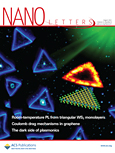 Irony alert: If you’re going to publish a paper on the importance of hearing from many voice in a debate, better make sure every voice is heard.
Irony alert: If you’re going to publish a paper on the importance of hearing from many voice in a debate, better make sure every voice is heard.
Here’s a case where some got muted.
Third World Quarterly, a Taylor & Francis title, has retracted a paper it published recently because only one of the authors — a co-editor of the special issue in which the paper appeared — was listed on the final article. Here’s the retraction notice, which explains the publisher’s mishap: Continue reading E pluribus unum (oops!) forces retraction of social justice article








